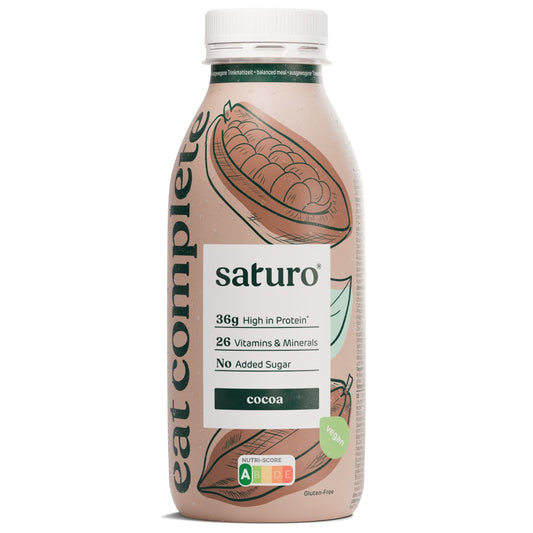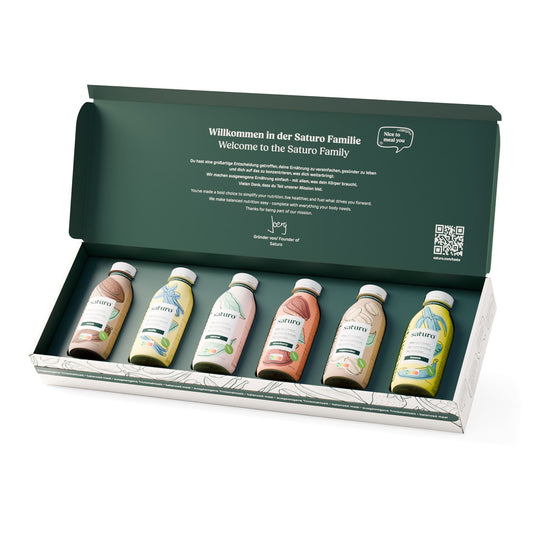Contents
1
What is vitamin B2 deficiency and how much vitamin B2 do you need every day?
2
Vitamin B2 deficiency symptoms
3
Causes of vitamin B2 deficiency
4
Vitamin B2 in food
Vegan vitamin B2 sources
Animal vitamin B2 sources
Drinking meals against vitamin B2 deficiency
Vegan vitamin B2 sources
| Vegan vitamin B2 sources | Vitamin B2 content per 100 g |
|---|---|
| 1. Spirulina (dried) | 3.7 mg |
| 2. Shiitake mushrooms (dried) | 1.3 mg |
| 3. Almonds | 1.2 mg |
| 4. Litschi (dried) | 0.6 mg |
| 5. Tahini | 0.5 mg |
| 6. Tomato (dried) | 0.5 mg |
| 7. Mushrooms (fried) | 0.5 mg |
| 8. Tofu | 0.4 mg |
| 9. Sunflower seeds | 0.4 mg |
| 10. Kale (raw) | 0.3 mg |
Animal vitamin B2 sources
| Animal vitamin B2 sources | Vitamin B2 content per 100 g |
|---|---|
| 1. Lamb liver (fried) | 4.6 mg |
| 2. Cattle liver (fried) | 3.4 mg |
| 3. Inkfish (cooked) | 1.7 mg |
| 4. goat cheese (hard) | 1.2 mg |
| 5. Fish roges (cooked) | 0.9 mg |
| 6. Feta | 0.8 mg |
| 7. Wild meat (cooked) | 0.6 mg |
| 8. Egg yolk (raw) | 0.5 mg |
| 9. Salmon (cooked) | 0.5 mg |
| 10. Calamari (fried) | 0.5 mg |





